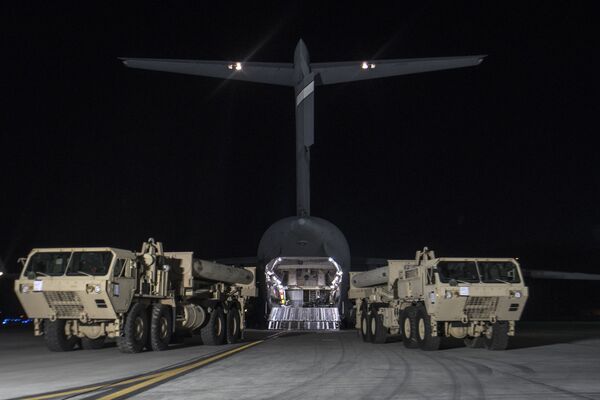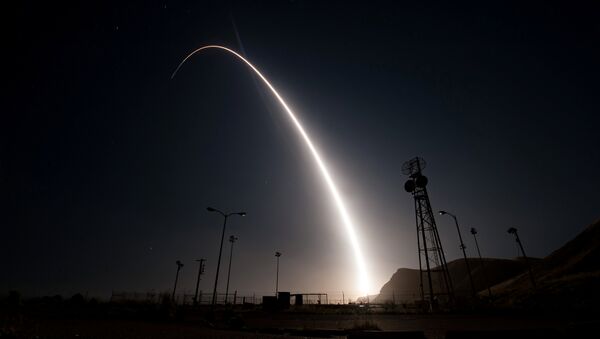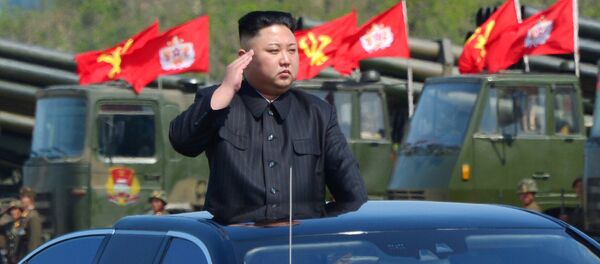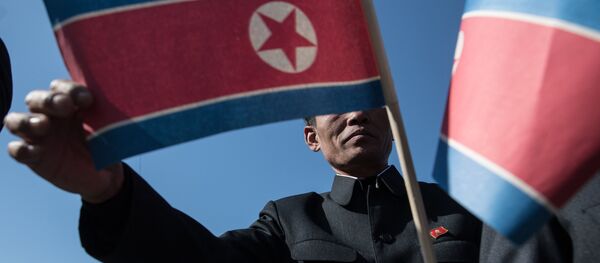Although Pyongyang has been recently presented as the main source of the crisis in the Korean peninsula, it appears that there is yet another player behind the escalation of tensions in the region.
"The North Korean 'crisis' is a Washington orchestration," Dr. Paul Craig Roberts, American economist, author and former Assistant Secretary of the Treasury for Economic Policy under President Ronald Reagan, writes on his blog.
Regardless of its image of a troublemaker North Korea has not attacked or invaded anyone in the last 64 years, he noted, adding that Pyongyang lacks the military strength to attack either South Korea or Japan — the US' longstanding allies in the region.
"Moreover, China would not permit North Korea to start a war," he remarked.
"Washington claimed that the anti-ABM bases were not directed at Russia, but were for the protection of Europe against Iran's nuclear ICBMs," Dr. Roberts wrote, "Insouciant Americans might have believed this, but the Russians surely did not as Iran has neither ICBMs nor nuclear weapons."
Likewise, the claim that the Terminal High Altitude Area Defense (THAAD) which has recently been deployed in South Korea and has already become operational is aimed at protecting Seoul against Pyongyang's ICBMs sounds rather confusing.
"THAAD has nothing whatsoever to do with North Korea, which borders South Korea, making it pointless for North Korea to attack South Korea with ICBMs," the author stressed.

According Dr. Roberts, it is more probable that the North Korean "crisis" is just a cover for Washington to put anti-ballistic missile sites near China's border.
"In other words, Washington is creating a shield against nuclear retaliation from both Russia and China from a US [preemptive] nuclear strike against both countries," he wrote and added that "THAAD or anti-ABMs are useless against Russian nuclear cruise missiles and the Russian air force."
Predictably, Beijing has expressed its growing concerns over the deployment.
"I think that as for THAAD our position is clear and decisive. We are against the deployment of THAAD in South Korea. We call on the relevant parties to stop the deployment of THAAD immediately," China's Foreign Ministry spokesman Geng Shuang said Friday.
US political commentator and a regular contributor to Sputnik John Wight shares Roberts' stance.
"The reality is that the demonization of North Korea, the aggression being leveled against it, has more to do with imperialism than democracy," Wight wrote in his recent op-ed for Sputnik.
Wight pointed out that currently, the US has around 30,000 troops stationed in South Korea along with nuclear submarines and warships within striking distance of Pyongyang.
Recently, the US strike group led by Ohio-class missile submarines and the aircraft carrier USS Carl Vinson has been deployed near the Korean Peninsula.
To add more fuel to the fire, last Saturday, the US, and South Korea kicked off joint war games in the region.
"The exercise is the follow-up of the naval exercise in the Yellow Sea between the two navies on Tuesday. It is aimed at deterring North Korea's provocations and strengthening the military readiness of the Korea-US alliance," the South Korean Navy said, as quoted by Yonhap.
Given this, the notion that North Korea is the aggressor "is simply ludicrous," Wight highlighted.
Commenting on the escalation of tensions in the region, Russian Foreign Minister Sergei Lavrov pointed out late April that any military options in resolving the North Korean issue are fraught with disaster.
"It is obvious that heavy-handed approaches that are beginning to be mentioned publicly are fraught with catastrophic consequences for the Korean Peninsula and the whole of Northeast Asia," Lavrov stressed, referring to Washington's signals about the possibility of using "military options" toward Pyongyang.




